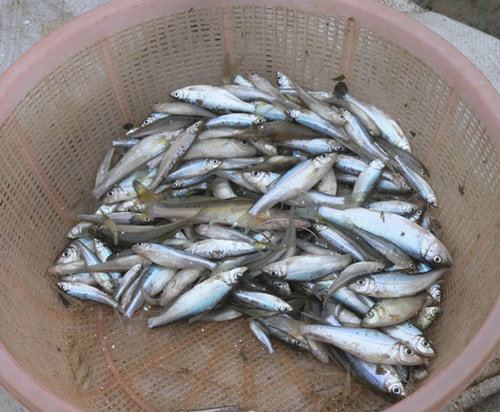What to eat during storm and flood season?
Organizing meals that ensure nutrition and food safety during storm and flood season will help people stay healthy and prevent certain diseases.
Faced with the flooding situation in many provinces in the Central region, the Department of Food Safety, Ministry of Health has issued recommendations on organizing meals for people in storm and flood areas to ensure nutrition and food safety, helping people stay healthy and prevent some diseases that may be contracted.
Having enough food to eat in flooded areas is very difficult. The Food Safety Department said that it is possible to use many types of food in the food group and processed products such as rice, noodles, corn, potatoes, cassava, instant noodles, dried rice paper... to have a full meal.
People should eat nutritious food, with enough representatives of the 4 food groups such as: The food group includes rice, noodles, corn, potatoes, cassava, instant noodles, dry rice paper, bread; the protein group includes meat, eggs, fish, shrimp, crab, mussels, snails, beans, sesame, peanuts...
 |
| People can take advantage of easily available food from ponds, lakes, and rivers such as fish, shrimp, eel... |
People can take advantage of easily available foods from ponds, lakes, and rivers such as fish, shrimp, eels, snails, and frogs; for the fat group, people can use tofu, soy milk, sesame, and peanuts, which are foods rich in fat. Vitamin and mineral groups such as green vegetables and ripe fruits are the main sources of vitamins in meals.
Herbs contain many micronutrients, plant antibiotics, and many aromatic essential oils that stimulate appetite and increase people's resistance. The Food Safety Department also recommends that people try to eat 3 meals a day, breakfast and lunch are considered main meals, and dinner should not be too full or too late.
The Food Safety Department said that food must be safe, not contaminated with toxic chemicals, not contaminated with worms or bacteria, and not be a source of disease. Unsanitary food can easily cause illness, so in any situation, even when there is a shortage or difficulty, people must ensure food safety and hygiene.
To prevent dangerous epidemics after the rainy and flood days, people need to eat and drink cooked food; use clean, safe water to prepare food and drinks and wash utensils; water containers must be clean and free of toxic substances; wash hands regularly with soap. People should not prepare food or serve food when they have a stomachache, fever, vomiting, skin infections or other contagious diseases.
According to VTV
